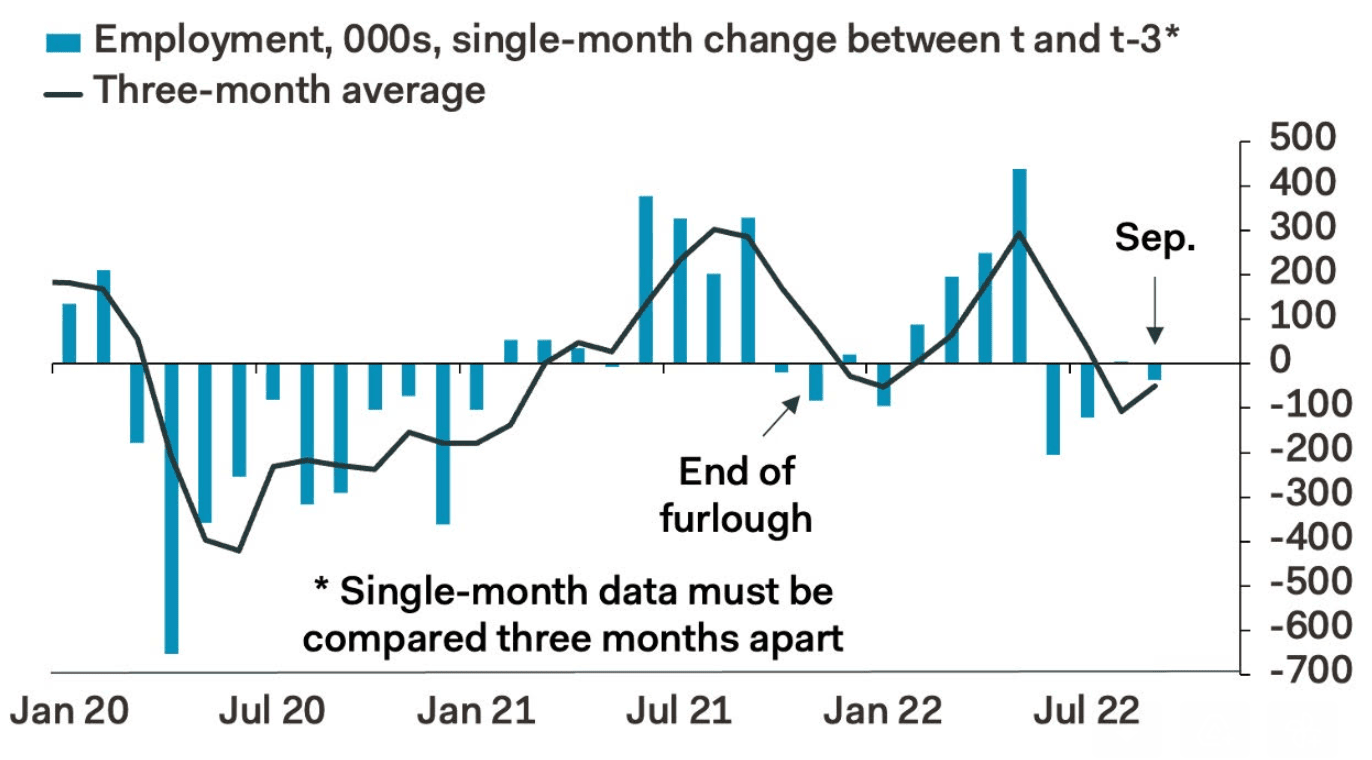Pound Sterling: UK Jobs Market is Turning, But Bank of England Can't Afford to Rest
- Written by: Gary Howes

Image © Adobe Images
The British Pound was higher against the Euro and Dollar following reports that UK wages came in stronger-than-expected in the UK's latest set of labour market statistics, but there are clear signs the market is cooling as the unemployment rate rose.
Although wages were higher than expected in September, unemployment increased with the rolling three-month-on-three-month measure recording 52K losses said the ONS, more than double the 25K loss the market was anticipating.
In response, the unemployment rate rose to 3.6%, up on August's 3.5%.
"The labour market no longer is tightening," says Samuel Tombs, Chief UK Economist at Pantheon Macroeconomics. "But it will take a few more months before the impact of the downturn in business confidence emerges fully in the jobs data."
Image courtesy of Pantheon Macroeconomics.
Although the rise in unemployment provides concrete evidence the UK economy has turned a corner, the Bank of England still has work to do if it is to bring inflation back to 2.0%, given wages beat expectations and point to domestic inflationary pressures being elevated.
The average earnings rate, with bonuses included, read at 6.0%, higher than the anticipated 5.9% and just softer than an upward-revised 6.1% for August.
In the three months to October, the estimated number of vacancies fell by 46K to 1,225,000. Yet, despite four consecutive quarterly falls, the number of vacancies remains at historically high levels, another signal the Bank of England has more work to do.
Compare Currency Exchange Rates
Find out how much you could save on your international transfer
Estimated saving compared to high street banks:
£2,500.00
Free • No obligation • Takes 2 minutes
The Bank of England will therefore likely raise interest rates by 50 basis points in December, with further hikes possible in early 2023.
"We continue to think that the MPC will have seen enough hard evidence of rising unemployment and slowing wage growth by its meeting in mid-March to stop its tightening cycle, with Bank Rate at about 4%," says Tombs.
This is a shallower path of hikes than was envisaged in the aftermath of the September mini-budget, but further hikes will be required to ensure the Pound finds some support from UK gilt yields.
The British Pound held its gains following the release of the data with the Pound to euro exchange rate trading at 1.14 as it recouped some of the previous day's losses.
The Pound to Dollar exchange rate was at 1.1807 as it held onto last week's sizeable advance.
Market responses to the jobs data will however remain relatively limited given the looming release of CPI inflation midweek, arguably a more pressing figure for UK politicians and policymakers at the Bank of England.
Then there is Thursday's Autumn Statement where the scale of tax hikes and spending cuts could shape the domestic economic outlook for years to come.





